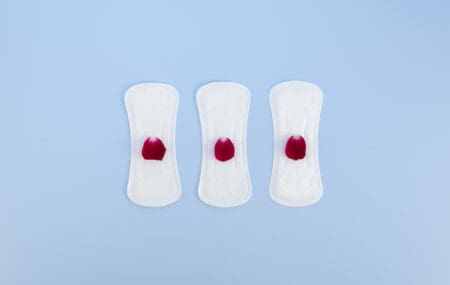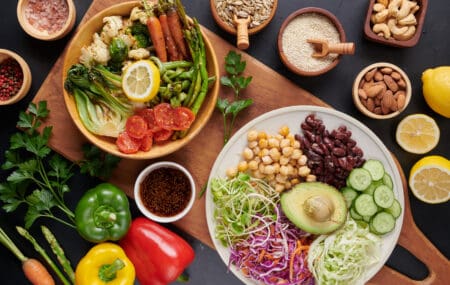
A Young Muslimah’s Guide to Puberty: Part 1
Growing up is a journey filled with new experiences – both exciting and overwhelming! Puberty is one of the biggest milestones along the way. For instance, you may notice changes in your body, emotions, and even your daily routines. While these can sometimes feel confusing, they are completely natural and a beautiful part of how Allah ﷻ has designed you.
This guide is here to help you understand puberty – covering everything from health and wellness to Islamic rules. The aim is to help you feel more confident, prepared, and connected to your body and faith, as you embrace this new stage of life!
What is puberty?
Puberty is when your body starts to mature into womanhood, bringing both physical and emotional changes. It happens because of hormones – natural chemicals in your body that trigger growth and development. Most girls begin puberty between the ages of 8 and 13, but don’t worry if yours starts a little earlier or later. Puberty is a gradual process, and everyone develops at their own pace.
What can you expect?
As your body transitions through puberty, you may notice several physical and emotional changes.
Physical changes can include:
- Breast development: This is usually the first visible sign of puberty, with the chest beginning to grow.
- Hair growth: You’ll notice pubic hair becoming thicker and curlier, hair appearing in your underarms, and sometimes a little on your upper lip.
- Height and body shape: Rapid growth (a “growth spurt”) happens, and your hips may widen, creating a curvier figure.
- Skin changes: Increased hormones can make your skin oilier and cause acne or pimples.
- Sweating: Your sweat glands become more active, leading to stronger body odour. Wearing breathable clothing and using deodorant can help!
- Menstruation (periods): You’ll start experiencing bleeding, usually between the ages of 9 and 15. This is a sign of reproductive maturity.
These changes might feel unfamiliar at first, but they are all a natural part of growing up. Some girls experience mild to severe cramps in their lower belly before their period starts. This happens because the muscles in the uterus contract to shed the lining. If you feel discomfort, try:
- Using a warm heating pad on your stomach.
- Doing light stretches, yoga or salt baths to relax your muscles.
- Asking a trusted adult about pain relievers if needed.
Emotional changes can include:
- Mood swings: You might feel more sensitive or irritable at times. This is because of hormonal shifts happening in your body.
- Increased self-awareness: You may feel more conscious about your appearance and how you interact with others.
If you’re feeling overwhelmed, talk to an adult you trust – like your parent, guardian, older sister, or a friend. It helps to have someone who’s been through it and can offer support. Remember, in Islam, taking care of both your body and mind is important. Your body is a gift from Allah ﷻ, and practicing self-care is a way of honouring it.
What is menstruation, or a “period”?
Menstruation, known as ḥayḍ in Arabic, happens because of natural hormonal changes in your body. Your ovaries produce hormones like oestrogen and progesterone, which prepare your uterus for pregnancy each month. If no pregnancy occurs, the uterus sheds its lining, and this exits your body as menstrual blood — which is what we call a period. This cycle repeats every month until a woman reaches menopause (around ages 45-55) or during pregnancy, when periods temporarily stop.
Here are some quick facts about periods:
- What will my first period look like? It may be light or heavy, and the colour of the blood can range from bright red to dark brown – both are completely normal.
- When will it start? Most girls get their first period around age 12, but it could be earlier or later.
- How long does a period last? Bleeding typically lasts between 2 to 7 days.
- Will my period be regular? It may take a couple of years for your cycle to settle into a regular pattern. Eventually, around 2-3 years after your first period, most girls have a period every 4-5 weeks.
- How much blood will I lose? It may look like a lot, but on average, women lose about 20 to 90ml of blood during a period—that’s around 1 to 5 tablespoons. Some women have heavier periods than others.
What is PMS / PMDD?
As your body prepares for your period each month, you may notice changes in your mood, energy levels, and physical well-being. These changes are caused by hormonal fluctuations that occur during the luteal phase — the days leading up to menstruation.
Premenstrual Syndrome (PMS) refers to a range of physical and emotional symptoms that many girls and women experience before their period begins. These symptoms can vary from person to person and may include:
- Mood swings: feeling more emotional, irritable, or anxious than usual
- Bloating: feeling puffy or swollen, especially around the stomach
- Headaches or migraines: increased sensitivity to light and sound
- Fatigue: feeling more tired than usual, even after a good night’s sleep
- Food cravings: an increased appetite, especially for sweet or salty foods
For most people, PMS symptoms are mild to moderate and last for a few days before their period starts. However, for others, these symptoms can feel overwhelming and interfere with daily life.
Premenstrual Dysphoric Disorder (PMDD) is a more severe form of PMS. PMDD symptoms can significantly impact daily life and may include:
- Severe mood swings – sudden feelings of sadness, irritability or or anger
- Depression or hopelessness – feeling unusually low, tearful, or less interest in activities you normally enjoy
- Intense anxiety or panic attacks – feeling tense, on edge or overwhelmed
- Difficulty concentrating – struggling to focus or complete tasks
- Fatigue – feeling a lack of energy, even with rest
- Sleep disturbances – difficulty falling asleep or staying asleep
If you find that your emotions, relationships, or daily activities are being affected by severe premenstrual symptoms, it’s important to seek support from a trusted adult, doctor, or mental health professional. There are lifestyle changes, medical treatments, and coping strategies that can help manage these symptoms. You are not alone, and support is available to help you feel more in control of your body and emotions.
What is vaginal discharge?
Between periods, your body naturally produces cervical mucus, a type of fluid that helps keep your reproductive system healthy. This discharge can vary in texture and colour, ranging from clear and stretchy to creamy white, depending on where you are in your cycle. It’s normal to notice it on your underwear. You can learn more about discharge here.
If you ever feel concerned about changes in your discharge – such as a strong odour, unusual colour, or discomfort – it’s a good idea to speak with a doctor for reassurance and guidance.
How to manage your period confidently
Let’s talk about products. There are many options available to help you stay comfortable and confident during your period. Every girl’s preference is different, so it may take some time to find what works best for you. Many girls start with pads because they are easy to use, but as you become more comfortable, you might want to explore other options.
Here’s a quick overview of common menstrual products. But you can learn more here:
Pros and cons
| Product | Pros | Cons |
| Pads | Easy to use Disposable and widely accessible Available in various absorbencies No internal insertion required | Can feel bulky Need to change frequently (every 4-6 hours, more often for heavy flow) Can cause skin irritation or discomfort, especially in hot weather Not as environmentally friendly (disposable waste) |
| Tampons | Discreet Can be worn during swimming or physical activities Available in various absorbencies More breathable than pads | Requires internal insertion, which may be uncomfortable for some Risk of Toxic Shock Syndrome (TSS) if not changed regularly Can cause dryness or irritation May not be as eco-friendly (single-use waste) |
| Menstrual Cups | Eco-friendly and reusable Cost-effective over timeHolds more blood than pads or tampons Can be worn for up to 12 hours Less risk of leaks if properly inserted | Requires internal insertion Can take time to learn to insert and remove properlyInitial cost is higher than pads/tampons Must be sterilised between cycles for hygiene |
| Period Underwear | Reusable and eco-friendly Comfortable and absorbent No need for additional products Good backup for other products on heavy flow days | Can take time to dry after washing Initial cost is higher than disposable options May not be suitable for very heavy flow days without additional protection |
| Menstrual Discs | Can hold more blood than tampons Can be worn for up to 12 hours Less risk of TSS than tampons | Requires internal insertion Can take time to learn how to insert and remove properly More expensive than tampons or pads (disposable or reusable options available) |
| Reusable Cloth Pads | Eco-friendly and reusable Can be more comfortable than disposable pads No chemicals or synthetic materials Available in different absorbencies | Requires washing after use May feel bulkier than disposable pads Higher initial cost |
How to maintain hygiene during your period
The vagina is self-cleaning, meaning it naturally maintains its balance without the need for excessive washing. However, a little extra care during your period can help you feel fresh and comfortable.
- Washing hands: Always wash your hands before and after changing any menstrual product. This simple habit can help prevent the transfer of bacteria to your vagina, and reduce the risk of infections.
- Gentle cleaning: Avoid using harsh soaps or scented products at all costs. These can disrupt your vagina’s natural pH balance, and lead to issues such as bacterial vaginosis or yeast infections. Stick to warm water, and if necessary, a mild, unscented soap to clean the vulva (the external part).
- Wash externally only (the vulva): The inside of the vagina doesn’t need cleaning. Using douches, and inserting any products into the vaginal canal is unnecessary and can cause more harm than good by disturbing your body’s natural balance.
- Daily showers: Showering daily helps keep you feeling fresh. I know this can feel really difficult, especially if you are struggling mentally. If you can’t shower everyday, make sure to at least wash your vagina. If you use unscented wipes, ensure they are free from chemicals that could irritate the delicate skin around the vulva.
- Stay dry: One common cause of odour during menstruation is dampness. Wearing cotton underwear and loose-fitting clothes can help your skin breathe and keep the area dry. If you’re using pads, opt for breathable, cotton-based ones to maintain freshness.
- Change regularly: Whether using pads, tampons, or menstrual cups, changing them frequently prevents bacteria growth and odour.
- Avoiding scented products: Scented pads, tampons, or vaginal washes can disrupt the vagina’s natural pH balance and lead to infections. Always choose unscented, chemical-free products.
- Breathable fabrics: Avoid tight clothing like synthetic underwear. These can trap heat and moisture, creating an environment where bacteria or yeast thrive. Instead, opt for loose, breathable fabrics such as cotton. Cotton allows air circulation, helping to keep the vaginal area dry and reducing the risk of infections.
Have a read of these guides to help you learn more: one and two.
Tips for taking care of yourself on your period
During puberty, self-care becomes essential for both your physical and emotional well-being.
- Stay hydrated: Drinking plenty of water is important for vaginal health. It helps keep your vaginal tissues lubricated and moist, which reduces the risk of irritation and infection. It also washes out bacteria before infections can flare up.
- Eat mindfully: Avoid foods that are high in salt or caffeine, as they can make you feel more bloated and uncomfortable. Instead, opt for nutrient-rich foods like leafy greens, which are high in iron and can help replenish what your body loses during menstruation.
- Nutrition and diet: Include iron-rich foods like spinach, lentils, and red meat to replenish nutrients lost during menstruation.
- Reach out to loved ones: Talk to your mother, sister, or a trusted adult if you have questions or concerns. Discussing your concerns can help offer clarity on challenges you may face and insights into how to manage these changes with ease.
When to see a doctor
Most periods are perfectly normal, but if you notice anything unusual, it’s always a good idea to check in with your doctor. Here are a few signs to look out for:
- You’re 15 and haven’t started your period
- You’ve had your period for more than 2 years, but it’s still not regular (coming every 4–5 weeks)
- You experience bleeding between periods
- You have severe cramps that don’t improve with pain relief like ibuprofen
- You have very heavy bleeding (soaking through a pad or tampon faster than every 1 hour)
- Your periods last more than about a week
- You have severe PMS that interferes with your daily activities
Final thoughts
Puberty and menstruation are important milestones in your journey as a young Muslimah. They mark growth, responsibility, and the beginning of new experiences — both physical and spiritual. While these changes may feel overwhelming at times, they are also an opportunity to deepen your connection with Allah ﷻ, practice self-care, and embrace this phase of life with confidence.
Allah ﷻ reminds us in the Qur’an: “Indeed, Allah loves those who are constantly repentant and loves those who purify themselves.” (Sūrat al-Baqarah, 2:222). Your journey is unique, and you are never alone. Allah ﷻ sees and rewards your efforts, and your family and community are here to support you every step of the way.
Join us for Part 2, where we’ll explore the Islamic perspective on puberty and the fiqh (rulings) surrounding it, helping you navigate this journey with both knowledge and faith.

